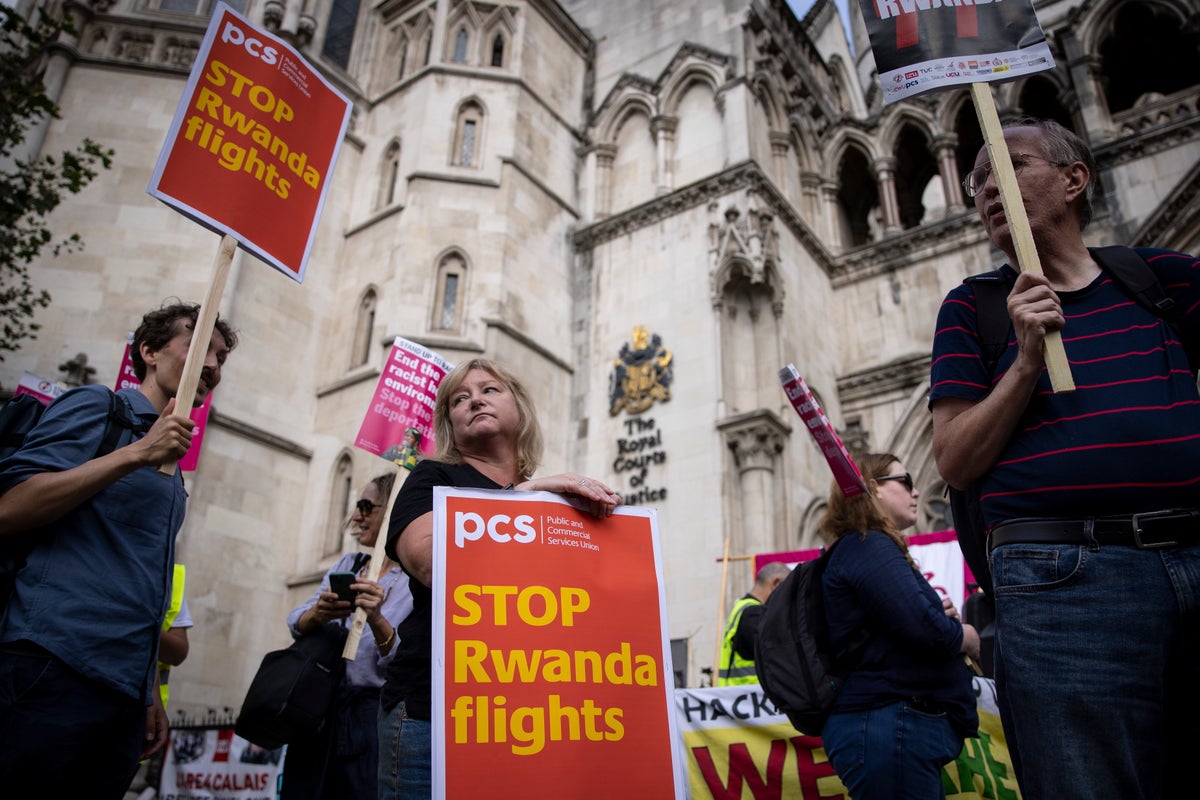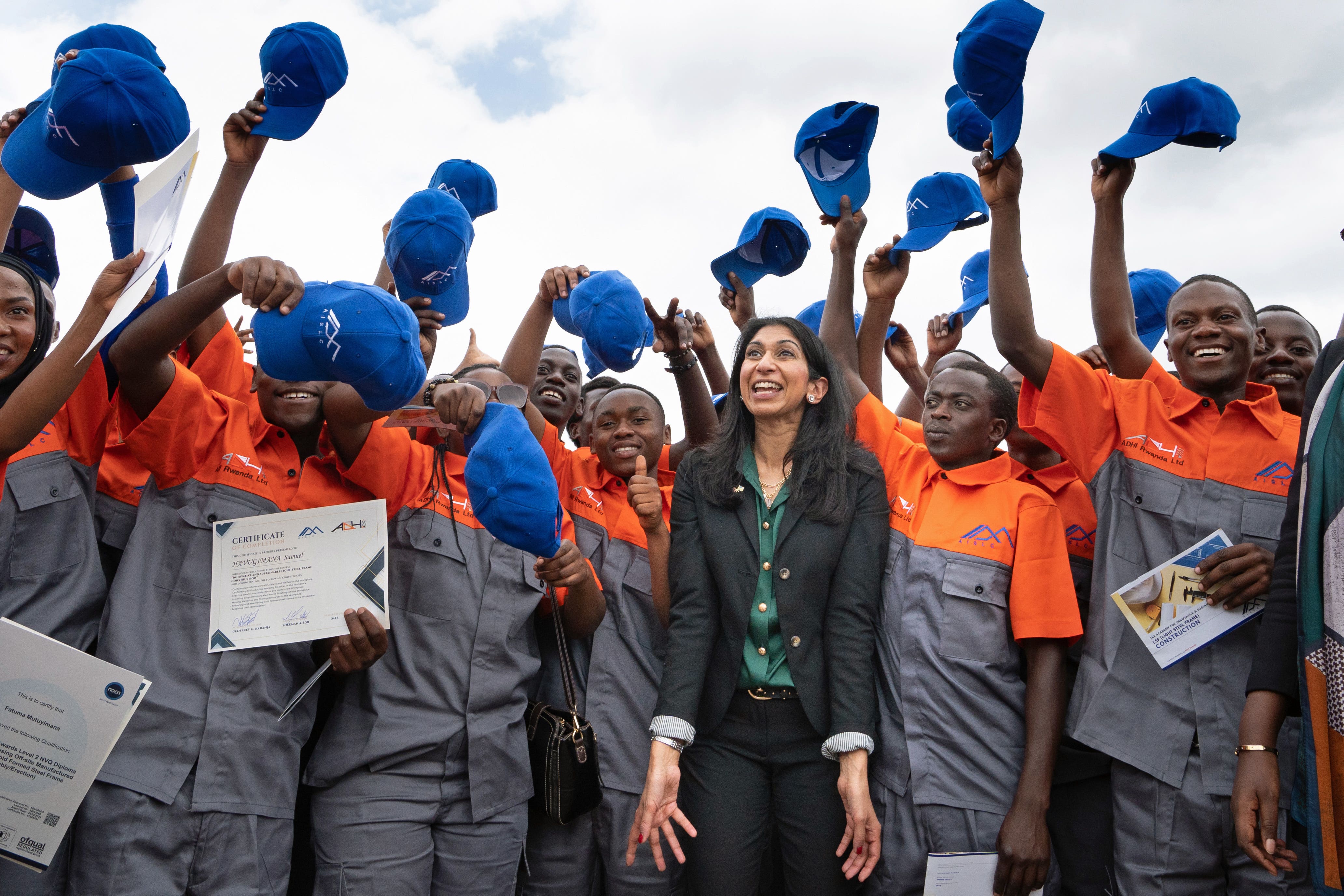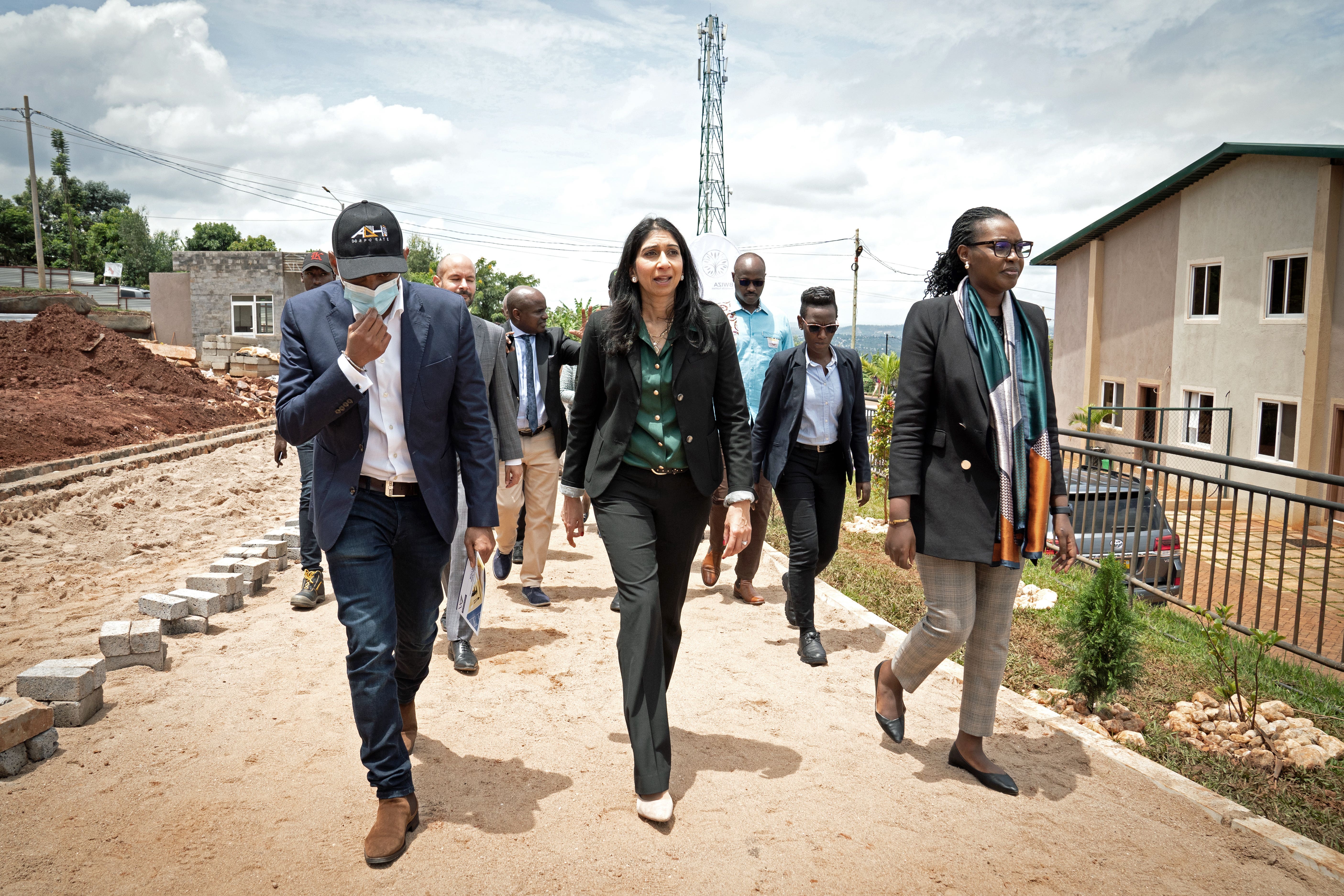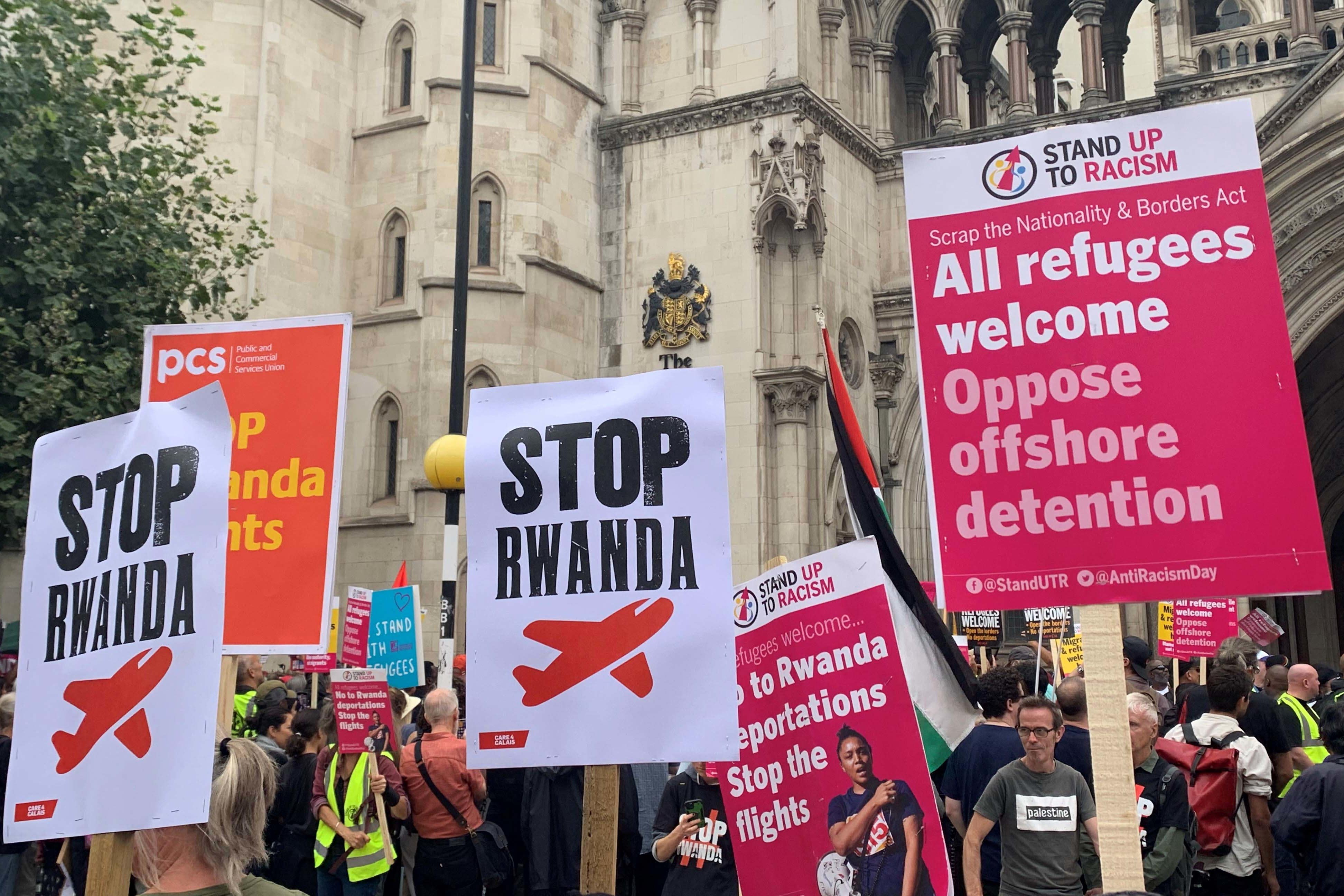
The Rwanda plan to deport asylum-seekers who arrive in the UK is back in the courts after it was deemed wrong that the High Court ruled the scheme lawful.
The appeal hearing ran from Monday 24 April to Thursday 27 April but the judges have not yet said when a verdict will be announced.
Flights cannot currently take off to Rwanda while legal proceedings are ongoing.
It comes as Home Secretary Suella Braverman shared her vision for conservatism at a right-wing conference in London on 15 May, citing her own parents’ arrival in Britain via “legal and controlled migration”.
This is how events leading up to this point unfolded, starting with the announcement of the scheme in April 2022.
2022
April 14: Following a drastic increase in the number of people crossing the Channel, then-prime minister Boris Johnson announces a plan to deport migrants arriving in small boats to Rwanda for their claims to be processed. He says this would act as a “very considerable deterrent”.
June 15: The first deportation flight to Rwanda is cancelled just minutes before take-off following a ruling by a judge at the European Court of Human Rights in Strasbourg.
August 23: The Ministry of Defence says 1,295 migrants made the crossing in 27 boats, another new record which remains the highest figure for a single day.
August 25: Former home secretary Priti Patel announces an agreement with the Albanian government to send migrants back in a bid to curb the numbers arriving from that country amid concerns they account for 60 per cent of all UK arrivals.
November 14: New Home Secretary Suella Braverman signs an agreement with French interior minister Gerald Darmian allowing British officers to join French beach patrols.

November 23: Ms Braverman admits the government has “failed to control our borders”, but tells MPs they are determined to “fix” the problem, following criticism of overcrowding at the Manston processing centre in Kent.
December 14: Four people die and 39 others are rescued after their dinghy capsizes in the Channel.
December 19: The High Court rules the government’s Rwanda policy is lawful, but orders the cases of the first eight deportees to be reconsidered.
December 31: Some 45,755 migrants made the Channel crossing over the course of the year, according to government figures.
2023
January 4: Prime minister Rishi Sunak announces legislation to tackle the migrant crisis is one of five key priorities for his premiership.
March 7: Ms Braverman tells MPs the Illegal Migration Bill will impose a legal duty to remove those arriving in the country illegally, barring them from claiming asylum in the UK.
March 10: Tensions mount as Mr Sunak defends the policy as “the right approach” against criticism from sports pundit Gary Lineker. Lineker’s intervention led to a high-profile impartiality row that saw him suspended from Match Of The Day. A number of his colleagues, including Alan Shearer and Ian Wright boycotted the show and others in solidarity with the presenter and he was later reinstated.
March 12: Chancellor Jeremy Hunt does not rule out the prospect of children being detained under the new plans, which would see those crossing the Channel eligible for asylum only in a “safe” third country such as Rwanda.

March 13: The plan draws criticism from former Tory prime minister Theresa May, who says it is “not enough” to send people to claim asylum in Rwanda and warns the UK is “shutting the door” on victims of modern slavery.
March 14: A High Court judge rules that asylum seekers facing removal to Rwanda can appeal against Home Office decisions over alleged errors in the consideration of whether relocation poses a risk to their human rights, dealing another blow to the plan.
March 17: Ms Braverman doubles down on the deportation policy on a visit to Rwanda despite the plan remaining embroiled in legal battles, claiming the £140 million deal will be a “powerful deterrent” to those attempting to cross the Channel.
March 18: Ms Braverman is given a tour of potential migrant housing after the land was purchased by the Rwandan government, ahead of meeting with President Paul Kagame and her counterpart Vincent Biruta to discuss the deal.
April 14: New figures show the Rwanda deal is failing to deter asylum seekers from crossing the English Channel a year after it was signed. As of early April, almost 5,000 people had made the journey since the start of 2023, which is almost exactly the same figure seen by the same point in 2022.

April 15: Small boat migrants previously threatened with deportation to Rwanda have been accepted into the UK’s asylum system after months of living in limbo. They were among thousands of asylum seekers sent “notices of intent” because they passed through countries, such as France, where the UK claims they could have remained before crossing the English Channel Their notices were subsequently withdrawn.
April 24: The next stage of the legal battle over the Rwanda deal began, with the Court of Appeal to reconsider if it is safe to send asylum seekers to the country. Suella Braverman widened the scope of the agreement since it was ruled lawful by the High Court in December 2022, meaning that it can also be applied to modern slavery victims and other small boat migrants.
April 24: Raza Husain KC told the Court of Appeal that Rwanda is not a safe country to receive asylum seekers from the UK and the High Court was wrong to declare the scheme lawful. The appellants argue that the Home Office breached several legal duties in deciding that Rwanda was a safe country to receive refugees, and failed to properly investigate the outcome of a similar deal with Israel which operated from 2013 to 2018.
May 7: The former head of the British army, General Sir Richard Dannatt, attacks the government’s plan to send migrants who arrived on small boats to Rwanda – saying the country is still living under the “shadow of genocide”.
May 15: Ms Braverman sets out her plan for conservatism at a right-wing conference in central London. She spoke of her own parents’ arrival in Britain “through legal and controlled migration” and added that immigrants should “learn English and understand British social norms and mores”.







